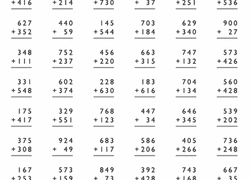One of my running buddies also has the pleasure of living with a precocious seven-year-old. Liam is articulate, innovative, and unapologetic about his disdain for addition. Specifically, Liam does not care for addition worksheets. He does not like pages of problems like 89 + 27. Last year he did not enjoy pages of problems including 8 + 3. Next year he will have no interest in 347 + 186. In short, he would not like addition with a fox.
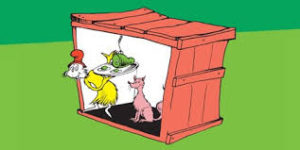
Equally vacuous are addition worksheets where Liam‘s fellow second graders “earn a prize.” The correct numerical answers correspond to letters that are to be crossed out. The remaining letters form a riddle: “why did the chicken cross the road?” “Because after doing so many addition worksheets, the chicken hoped to be run over by a truck.”

Understandably, Liam’s father is less sanguine about his son’s not knowing addition. Indeed my running buddy is a strong proponent of addition. Liam’s dad points out that to function in adult-world, addition is what’s for dinner. All the cool kids know how to add. Everybody you might want to be when you grow up–fireman, astronaut, orthopedic surgeon, ninja—is all over addition.

Liam remains unimpressed. Liam would rather do pretty much anything other than addition worksheets. Liam likes kicking a soccer ball with his mom; Liam likes baking cookies with his dad; Liam enjoys going swimming with his friends; Liam loves reading Harry Potter; Liam helps with the dishes, pitches in with yard work, dresses himself for church. In short, Liam is a complete and utter pleasure—a happy, loving seven-year-old—except when it comes to addition worksheets. Not surprisingly, addition worksheets are becoming the hill on which the family is prepared to die.

Liam’s dad postponed a family dog-walking excursion to the neighborhood frozen yogurt place until the addition worksheet was finished. Liam’s mom has put away Harry Potter and the Goblet of Fire. “You can read when the addition worksheet is finished.” Liam’s parents have set up a desk with a good light and no distractions to help Liam focus on his addition worksheets.Liam’s mom points out, “All the highest paying jobs are in engineering and engineers know how to add,”
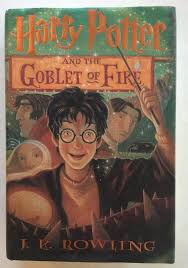
I am a proponent of arithmetic in general and addition in particular. But, on a recent run, I made the following wild assertions to Liam’s dad:
- Learning addition is great. Addition worksheets maybe not so much.
- How is Liam doing with the precursors of two-digit addition? Is it possible that there are some gaps in his background that make addition especially visceral?
- Is it possible that Liam’s aversion to addition worksheets might have more to do with his difficulties holding a pencil or some other developmental issue rather than his feelings about addition?
- Liam’s relationship with his parents is more important than Liam’s relationship with addition worksheets.
Understandably, I didn’t get much traction with any of my bizarre ideas. So I’m suggesting a more concrete approach. Here’s another way Liam’s dad might go about it:
Liam’s Dad: Hey, Liam. You wanna play “Greed”?
Liam: How do you play?
Liam’s Dad: You roll a die.
Liam: Uh huh.
Liam’s Dad: And if you get a one then it’s the other person’s turn. But if you don’t get a one, then that’s how many points you get.
Liam: I don’t get it.
Liam’s Dad: Do you want to go first or do you want me to go first?
Liam: I’ll go first.
Liam’s Dad: Okay. Here.
(Liam rolls the die and gets a four.)
Liam: Now what?
Liam’s Dad: You have four points. Do you want to keep rolling or stop with four points?
Liam: I’ll roll again. (Liam picks up the die and rolls a two.)
Liam’s Dad: You have four points from before and two points now.
Liam: That’s six points.
Liam’s Dad: Uh huh. Do you want to stop or roll again?
Liam: (thinks.) I’ll stop.
Liam’s Dad: Okay, it’s my turn. (Liam’s dad picks up the die and rolls a three.) I have three points. I’ll go again. (Liam’s dad rolls a one.) Aw, too bad. I got a one so I lose all my points from this turn. Your turn.
Liam: Ooh, ones are bad. My turn. (Liam rolls a five.) I have five points. (Rolls again. Gets a three.) Five plus three is eight. (Rolls again. Gets a four.) Eight plus four is 12. I’ll stop. I have six from before and 12 from this turn. Let me get a paper. Twelve plus six is 18. I’m going to write down “Daddy” on one side and “Liam” so I can know how many points we have. Your turn, Daddy.

Note that Liam is doing addition problems again and again. He’s adding five plus three. He’s adding eight plus four. Every time he rolls the die he’s doing another addition problem. He is also doing addition problems on Daddy’s turn because he wants to know Daddy’s score. The addition problems that he’s doing are the same from the ubiquitous school worksheets. However, unlike typical first-graders, Liam is having fun. I’m not sure this point can be overemphasized. There is something to be said for fun.

I have never forced a child to play “Greed.” I doubt that first-grade teachers can make the same claim about worksheets. And I have never, in all my years of teaching and playing games with children, met a kid who wasn’t enthralled with dice and games of chance. For all I know there may be adults who also enjoy similar games. If the multi-billion dollar casino gaming industry is any indication, there may be many such adults.
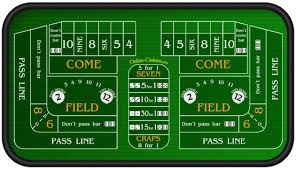
It doesn’t take much imagination to extrapolate from single-digit addition to two-digit addition (use two dice); to subtraction (start with a hundred points; first person to zero wins); multiplication (use four dice; multiply the sum of the first two times the sum of the second two.) The opportunities to learn seamlessly and joyously with your child are as varied as the combinations of successive rolls of the dice.
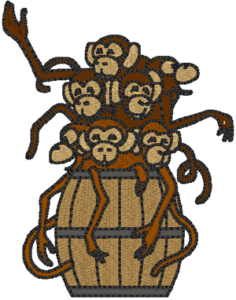
Playing games with your kids is more fun than a battle of misery. Whereas forcing your kids to do addition worksheets may even communicate the wrong message. Loving parents never want their kids to hear that they are not okay as they are.
***
Many kids over the years have asked about the optimum strategy for winning at “Greed”. When should a player keep rolling the die hoping to get more points? When should a player stop and “bank” his points from that turn? A better mathematician than I is needed to answer that question. But I cannot imagine a more awesome conversation to have with a seven-year-old. Because first-grade addition becomes 11th-grade probability and statistics before you can say, “I love learning stuff with my child!” And having a relationship with said child where you can work together and have fun learning cool stuff beats a power and control debacle about getting the worksheets done any time.
I would write more about fun learning games to play with your kids, but Liam’s parents have invited me to walk over to the frozen yogurt place in the neighborhood and I wouldn’t miss it for the world. Maybe we can even play “Greed” while we eat.
